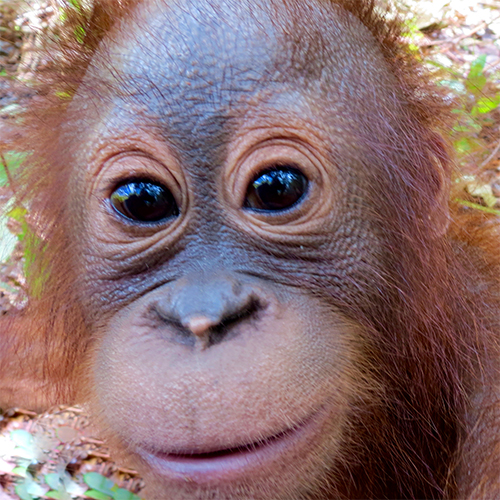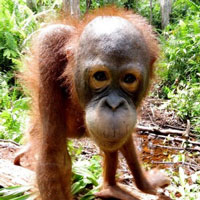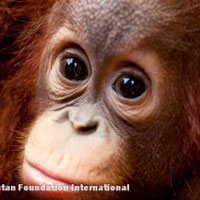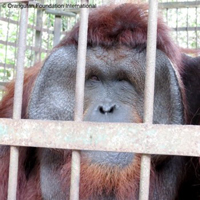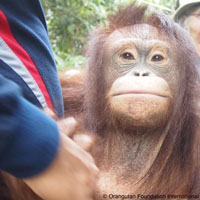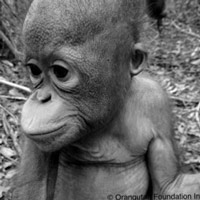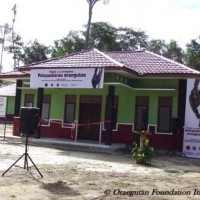Each orphaned infant orangutan at OFI’s Orangutan Care Center and Quarantine (OCCQ) copes with the traumatic loss of their mother in his/her own way. But the most common behaviors we… Continue reading Orangutan of the Month for May 2017: Mara
Orangutan of the Month for May 2017: Mara
